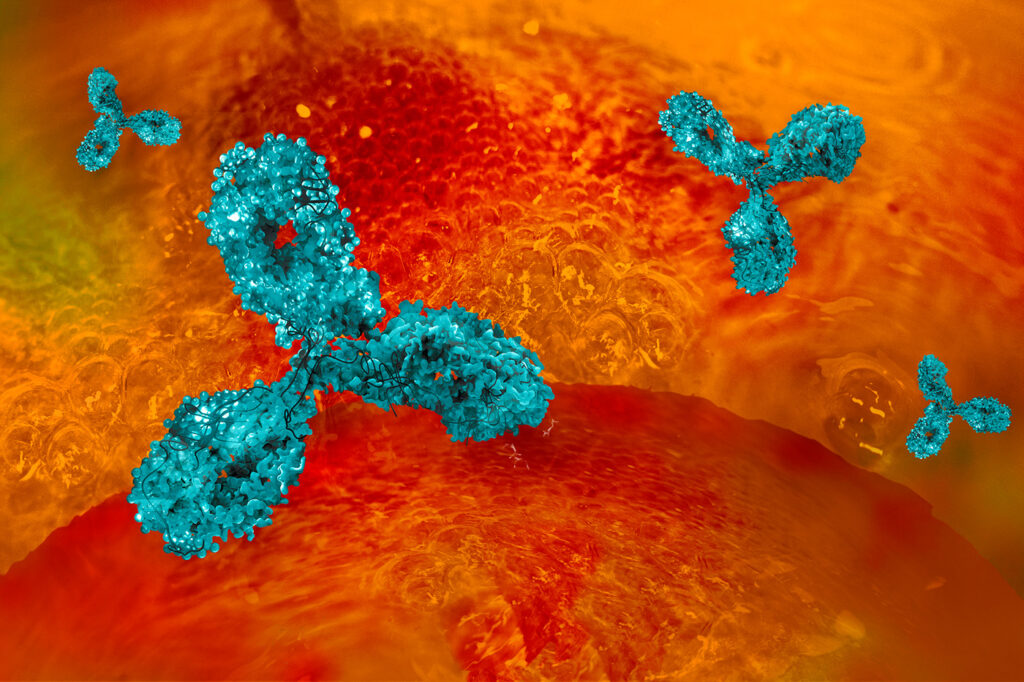The global resurgence of mpox, along with its evolving epidemiology and sustained human-to-human transmission, highlights the need to investigate the human antibody response to key monkeypox virus (MPXV) antigens to better guide public health and vaccination strategies.
In a new study published in Cell titled, “Human monoclonal antibodies targeting A35 protect from death caused by mpox,” researchers from Icahn School of Medicine at Mount Sinai have discovered three monoclonal antibodies from a person who had previously been infected with mpox. These antibodies, which target the viral protein A35, blocked viral spread in laboratory in vitro tests, protected rodents from severe disease, and fully prevented death.
Mpox is a viral disease caused by an orthopoxvirus, the family of viruses that leads to smallpox. This virus spreads mainly through close contact with an infected individual and causes a rash, enlarged lymph nodes, and fever.
While the World Health Organization twice declared the disease a public health emergency of international concern in the last three years, effective treatment for this virus family has historically been lacking.
“A previous study published in 2023 by our team showed that human antibodies targeting the viral protein A35 were unusually increased in sera in response to mpox infection compared with vaccination for smallpox or antibodies against other viral proteins,” said Camila Coelho, PhD, MBA, assistant professor of microbiology at the Icahn School of Medicine and co-corresponding author of the paper.
“Based on this earlier finding, we hypothesized that antibodies targeting A35 from mpox-infected individuals would be highly protective against orthopoxviruses, since the viruses in this family share high genetic similarity. We aimed to address the urgent unmet need for effective treatments for orthopoxviruses, and with the help of our outstanding collaborators, I am very proud to say that we are close to achieving that goal.”
The newly discovered antibodies bind to a region that is highly conserved across not only the orthopoxvirus genus, but also the entire poxvirus family, indicating that the region is conserved among different viruses and is not prone to mutations or antibody escape. The ability of these antibodies to block viral spread and protect from severe disease and death suggests that they are promising drug candidates that could be tested in humans for the prevention or treatment of mpox.
“Ours is the first report of the crystal structure of a human antibody bound to an mpox virus protein, providing a detailed map of a vulnerability in the virus,” said Raianna Fantin, PhD, postdoctoral researcher at Mount Sinai and first author of the study. “It is also the first time that monoclonal antibodies against orthopoxviruses were quantified in human sera. We were surprised by how consistently people recovering from mpox infection produced antibodies targeting the same A35 epitope of the virus as the antibodies we discovered.”
The research team plans to move the newly discovered antibodies into advanced preclinical safety and efficacy testing. Simultaneously, they are using the structural and immunological insights from the study to guide future work on enhancing the human immune response to mpox.


